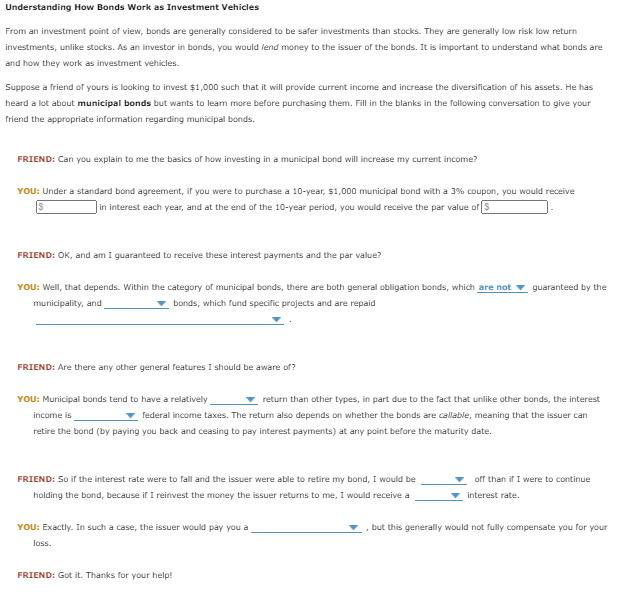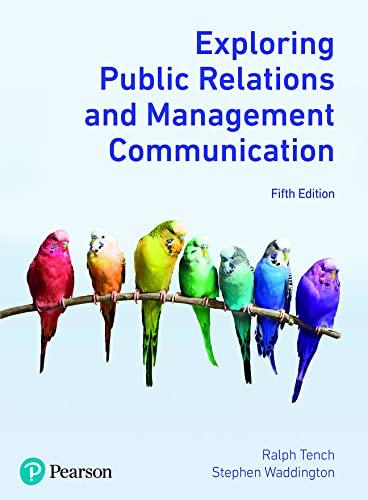Answered step by step
Verified Expert Solution
Question
1 Approved Answer
8. Bond basics Drop Down options: are/are not revenue/serial/obligatory/project only if the project generates sufficient revenue/regardless of the revenue generated by the project lower/higher free
8. Bond basics

Drop Down options:
- are/are not
- revenue/serial/obligatory/project
- only if the project generates sufficient revenue/regardless of the revenue generated by the project
- lower/higher
- free form/subject to
- worse/better
- lower/higher
- call fee/repayment premium/recall fee/call premium
Step by Step Solution
There are 3 Steps involved in it
Step: 1

Get Instant Access to Expert-Tailored Solutions
See step-by-step solutions with expert insights and AI powered tools for academic success
Step: 2

Step: 3

Ace Your Homework with AI
Get the answers you need in no time with our AI-driven, step-by-step assistance
Get Started


